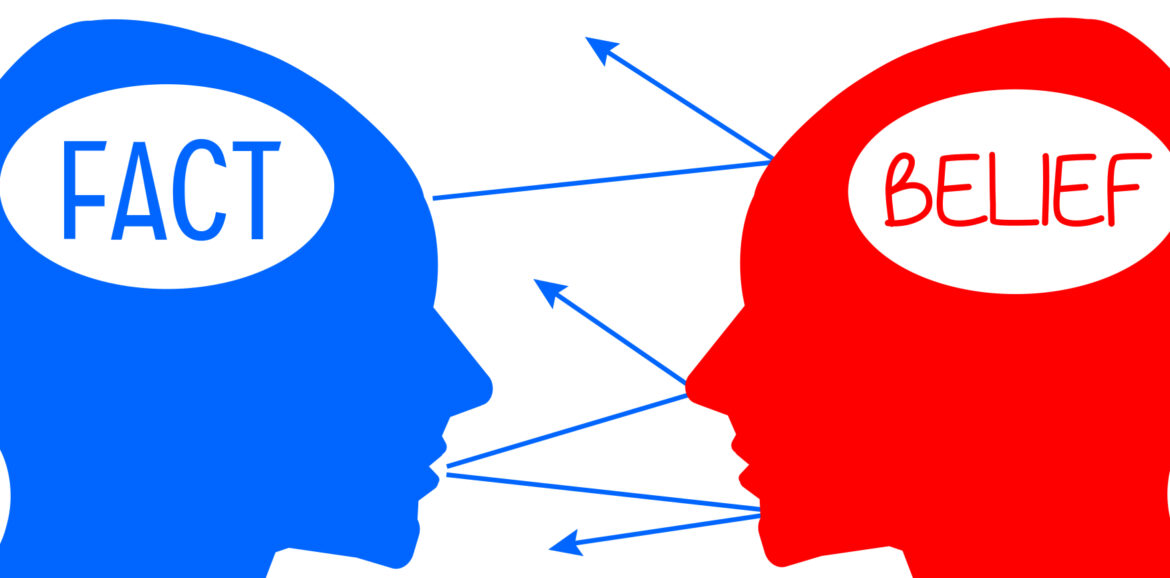The other day I had a reading with a young lady. She’s new to this metaphysical world and wants to learn to talk to her guides and learn to channel. When she asked her roommate her opinion about her channeling results, who’s into demons and dark things, she immediately told this young lady she doesn’t know what she’s doing and if that’s not enough, she declared that she’s talking to demons! Furthermore, she insulted the young lady by adding, “Who do you think you are being able to talk to angels?” As if she needed to be somebody special to do that and she’s not.
As she’s telling me I’m shaking my head NO! No, that is not true what her roommate is saying.
For one, consider the source. She’s into dark things and demons so of course demons will be her go-to answer. It only makes sense someone will infuse what they believe into their answer. We tend to do that.
The roommate believes in demons. That means it’s a belief. Beliefs are personal. Beliefs aren’t necessarily true. Often they are what we think or want to be true, but may not be.
Let’s Tell Everyone!
When we feel strongly enough about something, i.e. a belief, we tend to want to share it and even push it on other people. Like germs, keep your beliefs to yourself! The thing is, most people don’t realize they are pushing their beliefs onto others. They think it’s really cool so they want to tell everyone. Like when a new restaurant opens, they believe it’s great and want to tell everyone. I get it, it’s great to be enthusiastic, but not when the line is crossed.
Or when your standard answer reflects your beliefs. Think about it a little harder before you respond. Advice to the roommate – does she actually know if this young lady was channeling angels or demons? No, she has no proof either way. So, don’t say anything. Or ask questions to clarify or help the young lady figure out who or what she’s actually channeling. Don’t assume it’s demons because you believe in them! We all know was “ass-u-me” means!
All her “advice” or belief did was confuse and upset this well-intentioned young lady.
Pushy Doesn’t Mean Right!
Then there’s the pushy people. We all know those people too. Recently my family and I were sick. Well meaning friends want to find the answer of how/when we became infected and kept insisting it was one situation when incubation-wise I knew the timeline didn’t fit. So, please, I know you want to help, but stop pushing your belief on me as to when you think I got sick! At the end of the day, it really doesn’t matter. That’s a small but very common scenario.
Or the pushy people who just know they have all the answers as to how you should run your life, what medicines you should take, what food you should eat etc. Some are trying to help, for others it’s just their personality to be pushy. They think they’re helping, but if you didn’t ask, please don’t tell. And even if you did ask, the answer only needs to be given once, not repeated over and over.
Confusion and Mistrust
When people push their beliefs on us not only can it frustrate, annoy, enrage us, it also confuses us. Like this young lady. She was so turned around and upset with what her roommate said that she needed some outside help to sort it out. The “well-meaning” roommate caused a lot of unnecessary confusion.
When someone does that to you, what’s often the outcome? Lack of trust. It’s natural to start distrusting anything that person says because their answers are infused with their beliefs. Not fact, not evidence, not even probing questions, just what they believe.
Even if they don’t mean to hurt or confuse you, the end result is the same. You could walk away hurt, mad or confused, your world turned upside down all because of what someone else believes.
What’s the solution?
Learn to Identify Beliefs
Listen for “you should,” because should is a belief. It’s their belief, opinion or thought of what they feel you need to do. It’s optional. It might be a good idea; it might not be. Either way it’s your choice whether you want to take that advice or not. If you also believe it, you’ll probably take their advice. If you don’t, you may not.
Or it could leave you angry because a lot of people “should all over you” by peppering their conversations with what you should do – all their opinion. Take it or leave it. Sometimes we don’t know when to leave it, or ignore them and their advice.
Do the Litmus Test
If you ask for someone’s opinion, ask yourself some questions before acting on it because you’re going to get their beliefs. Does it resonate with me? Does it make sense? Would it help or hurt me if I did this? What are the repercussions if I took this advice or not?
I know someone who gets angry easily. She talks a lot of cr*p and doesn’t take a lot of action. She wants others to get upset with her and possibly do her dirty work (take action) for her so she riles people up. Since I know her well, I’ve learned to sort through how much of what she’s saying is just her being upset vs what she thinks/believes should be done about it, vs what’s based on reality? What can really be done vs what she thinks or wants to be done but isn’t realistic?
What solutions, if any, really can be taken to solve this problem? Is she just having a gripe session? If yes, ok, but take it for what it is – someone venting, not someone really wanting solutions. And someone spouting their beliefs of what they think is going on or what they think should be done about it, not someone who has actual grounded, answers. Learn to weed out the complainers who don’t have realistic “solutions.” What they have are beliefs based on their anger, frustration etc., not what really makes sense to do.
Trusted Sources
Even “trusted sources” can be wrong. I’m not talking about the news or the media but your friends or family or even someone you look up to. There are millions of people, even so-called experts or people that we look up to, that think they are right but turns out they aren’t. We believe them because they’re an expert, a professional or trusted source, but even they can be wrong!
Years ago, I spoke to this medical medium who came highly recommended. I trusted her because she had been right a few times with me. One time however, she was flat out, 1000% wrong. She claimed I had some condition when clearly, I did NOT.
She was adamant I had this condition and wouldn’t back down. I gave up arguing with her because I had zero symptoms to back up her claims. Sadly, I trusted her – until then. She believed she was right because she “supposedly” channeled this information about me. But she was 1000% wrong!
How does that happen? Like I said, sometimes even “experts” are wrong! It was my fault for trusting her. She had a few wins so I kept talking to her. But, boy was she wrong about this one! Turns out she was wrong again later big time with another unrelated incident.
While she ended up apologizing for both incidents, she clung to her beliefs, swearing that she knew she “heard” that from her guides. I accepted her apology and moved on. There was no use beating a dead horse trying to prove how wrong she was.
She was 1000% wrong but she clung to her beliefs. Sad to say, particularly “experts” do this to save face. If it hadn’t been so obvious she was dead wrong who knows how much longer I’d have kept talking with her? Who knows how much incorrect but not blatantly obvious information she would’ve given me? How much of her advice could’ve harmed me? No way to know so I’m just glad that I was given two very obvious situations to recognize that I could not trust her implicitly.
How Do You Recognize Them?
Do the litmus test again. Does it make sense? Are you going to take them at their word because they’re some kind of expert or guru? How about researching it to form your own opinion? Look for case studies. Ask for examples. What’s the success ratio? Do you have symptoms that fit what they’re saying? Are you in the situation they’re describing? Sometimes we think we are when really, we’re not.
I’m not saying doubt everyone, but have a healthy amount of skepticism. It can pay off in the end.
The most important tool in your toolbox to recognize beliefs, good “advice” and reliable experts is your intuition. That’s why I always ask the question, “Does it resonate with me?” “Does it feel right?” That’s tapping into your intuition, your gut, your inner knowing.
Even if you can’t figure it out with your mind, oftentimes you get a nudge, a ping, a hit, to identify when something doesn’t ring true. Follow that trail. It won’t steer you wrong! You just have to listen to it!
If you want to learn how to listen to your intuition, how to talk to it and how to trust it by CLICKING
HERE.
Once you start listening to your intuition, you’ll be amazed how much your life clicks into place. Then you can truly start enjoying yourself. CLICK HERE to find out more!






